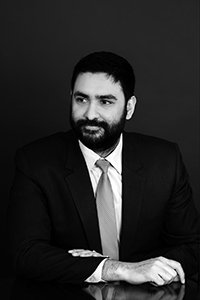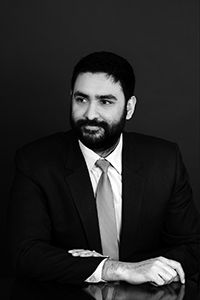Best Advocates in High Court Chandigarh for Property Disputes
 Garg that the Privy Council laid down that the Governor was divested of its power of passing an order when the above notification was issued. Indeed, the Explanatory Memorandum to the Northern Ireland SORs, at para 7. It seems to us that the Privy Council was thinking of and comparing the responsibility of the Governor for the orders passed by the delegate and by an officer acting under s. , After hearing the parties, the Calcutta High Court hold that the order of detention was lawfully made by the Chief Minister of West Bengal and the allegation of mala fide had not been established by the appellant.
Garg that the Privy Council laid down that the Governor was divested of its power of passing an order when the above notification was issued. Indeed, the Explanatory Memorandum to the Northern Ireland SORs, at para 7. It seems to us that the Privy Council was thinking of and comparing the responsibility of the Governor for the orders passed by the delegate and by an officer acting under s. , After hearing the parties, the Calcutta High Court hold that the order of detention was lawfully made by the Chief Minister of West Bengal and the allegation of mala fide had not been established by the appellant.
The patient subsequently died, following a cardiac arrest, but the Supreme Court nonetheless heard his widow’s appeal, which gave rise to questions concerning the proper approach to the assessment of a patient’s best interests top law firm in Chandigarh the post-MCA 2005 era. It then goes on to say that where there is disagreement about best interests or the decision is finely balanced, an application should be made to court for a declaration as to whether CANH continues to be in the patient’s best interests.
It was the case of Chando Kuer that her husband Babuji separated in 1934 from the coparcenary of which he was a member, and on his death on October 28, 1937 his share legal services in Chandigarh the family property devolved upon her, but the defendants failed and neglected to Chandigarh law firms divide the estate and deliver to her the share inherited by her. 2, states that „The regulations will protect people from direct discrimination, ie where a person treats another person less favourably because of his sexual orientation“.
The doctor is told to find out as much as possible about the patient’s values, wishes, feelings and beliefs. Against these powerful points, it is argued that this is a case of associative discrimination. The hospital Trust applied for a declaration, under section 15 of the MCA 2005, that it would be lawful, as being in the patient’s best interests, for three particular life-preserving treatments to be withheld if his condition got worse. It concerned a patient with multiple medical problems, who had a very limited level of awareness and lacked capacity to make decisions concerning his medical treatment.
F annexed to the plaint. Musamat Chando Kuer, widow of Babuji, instituted law firms in Chandigarh a suit on April 23, 1949 in the Court of the Sabordinate Judge, Darbhanga, against the collaterals of her husband for a decree for 9 partition and separate possession of a half share in the top Chandigarh advocates properties described in Schedules A to E and a fourth share in Sch. By the time of the Trust’s appeal top Chandigarh lawyers to the Court of Appeal, the patient had suffered a dramatic deterioration; he was completely dependent on mechanical ventilation and was comatose or semi-comatose.
 Affidavits were also filed by Kalyan Dutt and Debranjan Dutta controverting the allegations of the appellant so far as they were concerned. “ We are unable to agree with Mr. Aintree University Hospitals NHS Foundation Trust v James [2013] UKSC 67; [2014] AC 591 was the first case to come before the Supreme Court under the MCA 2005. The December 2017 Interim Guidance starts by identifying that a best interests decision cannot be taken for the patient where he has made a valid and applicable advance decision to refuse treatment which covers CANH, or where an attorney appointed under a suitable lasting power of attorney makes the decision.
Affidavits were also filed by Kalyan Dutt and Debranjan Dutta controverting the allegations of the appellant so far as they were concerned. “ We are unable to agree with Mr. Aintree University Hospitals NHS Foundation Trust v James [2013] UKSC 67; [2014] AC 591 was the first case to come before the Supreme Court under the MCA 2005. The December 2017 Interim Guidance starts by identifying that a best interests decision cannot be taken for the patient where he has made a valid and applicable advance decision to refuse treatment which covers CANH, or where an attorney appointed under a suitable lasting power of attorney makes the decision.
A second clinical opinion should be sought from a consultant with experience of PDOC who has not been involved in the patient’s care and who should, so far as reasonably practical, be external to the NHS Trust/Clinical Commissioning Group („CCG“); the consultant should examine the patient and review the medical records and the information that has been collected. The appeal was dismissed, although Peter Jackson J’s approach to determining the patient’s best interests was preferred to that of the Court of Appeal.
Then, dealing with the remainder of cases, the guidance sets out the steps that should be taken to ensure that there is proper consultation prior to determining what is in the patient’s best law firm in Chandigarh interests. The family did not agree with the withdrawal of treatment and, at first instance, Peter Jackson J refused to grant the declaration. The Court of Appeal allowed the appeal and granted the declaration. In most direct discrimination cases, the argument is that a person has been less favourably treated because of his own protected characteristic.
The Judgment of the Court was delivered by Shah, J. 1, of the Act of 1935 the Governor remains responsible for the action of his subordinates taken advocate in Chandigarh his name. These include ensuring that the RCP guidelines have been followed regarding assessment, with the assessment carried out by professionals with the appropriate training, that guidance law firms in Chandigarh the Mental Capacity Act Code, and from the BMA, RCP and/or GMC has been followed, that there have been formal, documented best interests meetings with those who care for the patient and are interested in his or her welfare, and that an IMCA is consulted where necessary.
There should be very detailed records kept, both a clinical record (covering many specified matters) and a record of discussions, meetings and so on. The High Court accordingly dismissed the application of the appellant for grant of a writ of habeas corpus.